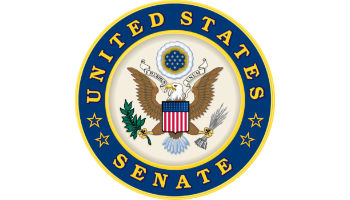On Wednesday the Senate’s Environment and Public Works committee held its first oversight hearing of the 115th Congress (video available here) and new Chairman John Barrasso (R-WY) started things off by making it clear where he stands on the proposal offered by President Trump’s campaign to use private investment to improve our nation’s infrastructure:
“Funding solutions that involve public-private partnerships, as have been discussed by administration officials, may be innovative solutions for crumbling inner cities, but do not work for rural areas….Public-private partnerships and other approaches to infrastructure investment that depend on a positive revenue stream from a project are not a surface transportation infrastructure solution for rural states.”
A panel of five state and local government officials representing Colorado, Delaware, Oklahoma, West Virginia and Wyoming appeared before the Committee and spoke about what their communities need from the federal government to modernize their infrastructure (written testimony available here).
Cindy Bobbitt, Commissioner of Grant County, Oklahoma, emphasized that while public-private partnerships might not be a good fit for rural counties like hers, municipal bonds are. Ms. Bobbitt asked Congress to protect tax-exempt municipal bonds. (A bit of background: Republican leadership has declared tax reform a top priority in this Congress and is planning a broad overhaul of the tax code. State and local governments, which rely on municipal bonds to finance infrastructure and community projects, fear that the tax-exempt status of municipal bonds could be changed. Stakeholders, including ASCE, have joined together to ask Congress to protect tax-exempt municipal bonds.)
William Panos, Director of the Wyoming Department of Transportation, drew the Committee’s attention to the fact that the increased spending levels authorized by the FAST Act (enacted December 2015) have yet to take effect. Because Congress has not passed a FY17 spending bill (despite the federal fiscal year 2017 beginning October 1, 2016) and instead kept the government open via two Continuing Resolutions (CRs), funding for surface transportation is still at FY16’s (i.e. pre-FAST Act) authorized levels. Mr. Panos said the use of repeated CRs “restricts our ability to plan for future projects and in our state we’re working with our state legislature now and we needed to ask for twice the amount of borrowing authority we would have otherwise” to be able to cover cashflow needs in the face of federal funding uncertainty.
Ranking Member Tom Carper (D-DE) also took the opportunity to highlight the fact that Wyoming raised its gas tax by 10 cents in 2013, while the federal gas tax has not been raised since 1993 and the Highway Trust Fund will run out of money in 2020 without Congressional action.
Next week has more transportation-related hearings in store. The Senate Commerce, Science and Transportation Committee’s Subcommittee on Surface Transportation and Merchant Marine Infrastructure, Safety and Security will hold a hearing on stakeholder perspectives on a multimodal transportation. The House Energy and Commerce Committee’s Subcommittee on Digital Commerce and Consumer Protection will hold a hearing on the road to deployment of driverless cars.
